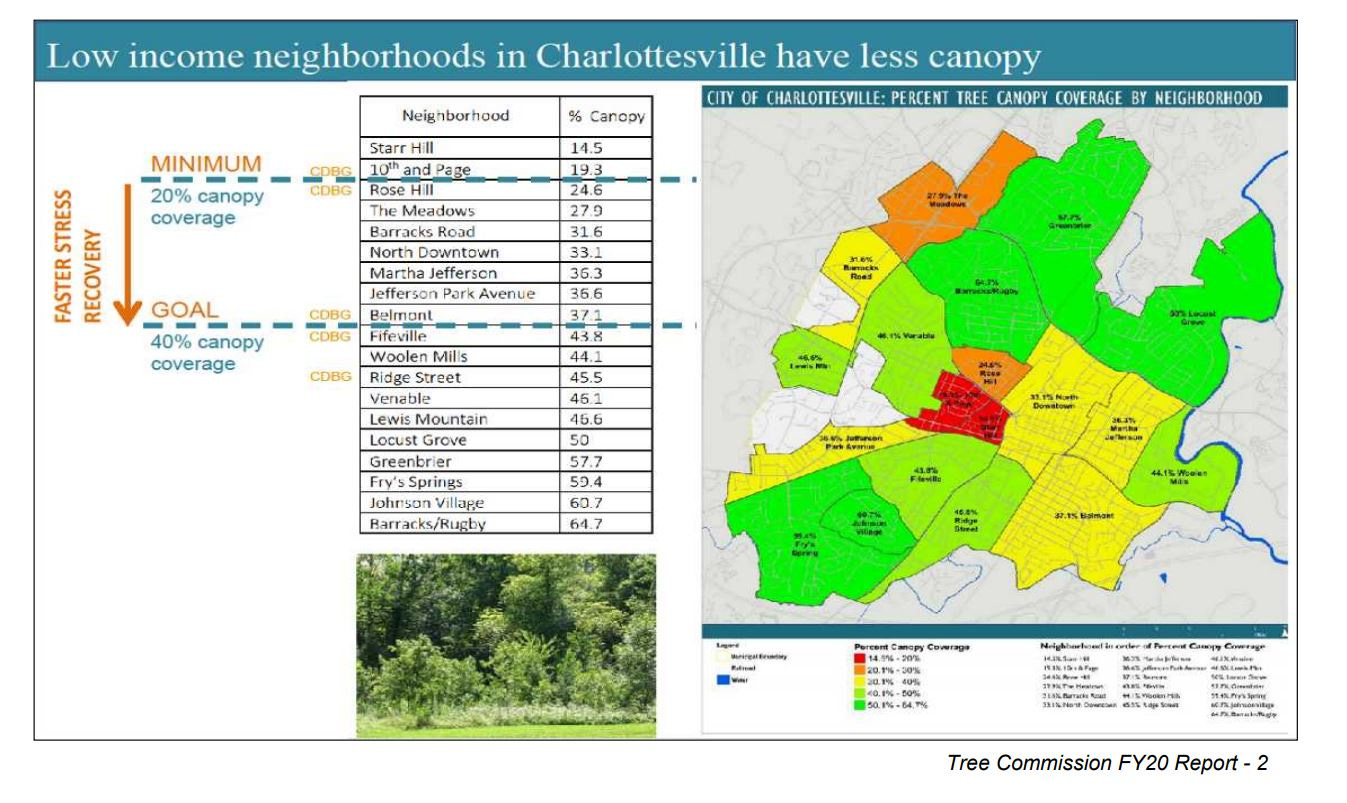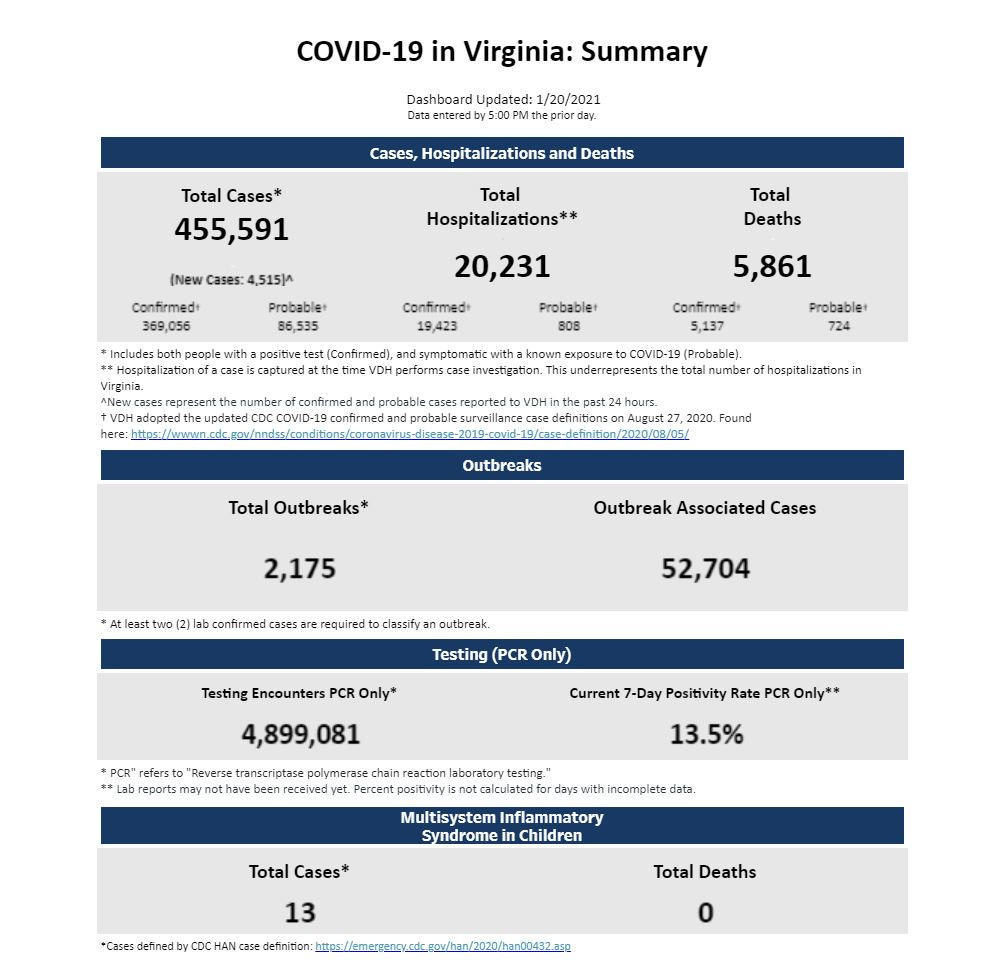It’s my mother’s birthday, and I wish her a fantastic day and am sad I will not be able to visit her today. So this January 20, 2021 installment of Charlottesville Community Engagement is dedicated as a grateful appreciation for all she’s done for me over the years. None of this would be possible without her love and support over the years, and I am truly grateful. Happy birthday, mom!
On today’s show:
Charlottesville City Council gets a budget update
Charlottesville Council hears from the Tree Commission about the unmet planting needs
The Commonwealth Transportation Board hears about COVID-related traffic trends
Today's Patreon-fueled shout-out is for the Plant Northern Piedmont Natives Campaign, an initiative that wants you to grow native plants in yards, farms, public spaces and gardens in the northern Piedmont. Native plants provide habitat, food sources for wildlife, ecosystem resiliency in the face of climate change, and clean water. Start at the Plant Northern Piedmont Natives Facebook page and tell them Lonnie Murray sent you!
The fallout from the economic shutdown related to the COVID-19 pandemic means that Charlottesville is facing a tougher financial future than would have been expected. Last night, the City Council got an update on the city’s financial picture. Ryan Davidson is a senior budget analyst with the city. (read the report)
“There’s been a marked decline in many of our revenues and our new revenue projections are approximately $5 million than what we had previously presented to City Council,” Davidson said.
Specifically, meals tax collections are $2 million lower than had been forecast in September, and transient lodging tax collections are $1.86 million lower. But not all sources of revenue are in the red.
“Licenses and permits,” Davidson said. “This is one bit of good news! We are seeing continued strong performance in our building and plumbing and our other permits. We’re expecting almost a half million increase.”
Davidson said in the worst case scenario with revenues that continue to decline, the city could end up with a $13.2 million shortfall by the end of the year. To manage that shortfall, budget staff are using the cash reserve that Council agreed to put aside when it approved the budget for the current fiscal year. That money would have gone to various items in the capital improvement program. Davidson said the city may also need to use surpluses from both FY19 and FY20.
“That can be up to $4.1 million that we could bring in as the potential revenue source to help fill that gap,” Davidson said. He added that the city is trying to avoid laying off any employees, but it will take a full effort by Council and staff to continue to get through the year.
Davidson reminded the Council there are still just over five months left in the fiscal year, and projections can change over time as conditions fluctuate.
“Let’s try to manage to the worst case scenario, then if things are better than that, then we will be prepared for that,” Davidson said. “And if they’re better than that, we have leverage and we will have resources that we have not yet had to use.”

Council also got a briefing from the Charlottesville Tree Commission on their annual report. Brian Menard is the group’s chair. (read the report)
“This past December marked ten years since Council established the commission with the charge to ‘protect and improve the urban forest in pursuit of a better quality of life for city residents and environmental and aesthetic benefits,” Menard said.
Menard said both planting more trees and preserving ones that exist are critical to maintain an urban forest, and that the benefits of doing so are many.
“These include public health, energy conservation, environmental sustainability, water and air quality, stormwater management, and environmental and social justice,” Menard said.
Menard said the percentage of Charlottesville’s 10.4 square miles covered by trees is dropping, and an aerial study will be conducted later this year to confirm initial analysis that the city has lost 460 acres of tree canopy since 2004 due to development and to the city not meeting its goals.
“The goal of planting two hundred trees a year has not been met in each of the last four years,” Menard said. “Planting has not kept pace with removals. They average about 129 trees a year, which is 65 percent of the planting goal.”
Menard said many new developments are not planting what they should, which leads to more urban heat and less shade.
“To be clear, the Commission understands and supports the need for more housing especially the critical need for affordable housing, but it believes that there must be a balance that recognizes another critical need which is to preserve and expand our green infrastructure,” Menard said.
Menard noted that neighborhoods with lower tree canopies are the ones with lower-incomes.
“Simply put, less shade equals higher levels of heat, negative health outcomes, and higher energy costs,” Menard said. “Neighborhoods with tree canopy below 40 percent are effectively unhealthy neighborhoods.”
Menard said members of the Tree Commission want to make sure the update of the zoning code and Comprehensive Plan reflects the need for more trees. They also would like funding restored for tree planting. That line item was eliminated in the current fiscal year and put in a reserve to deal with potential revenue shortfalls that turned out to have materialized.
Take a look at the report to learn more. I’ll have more from the City Council meeting in a future newsletter. (FY20 annual report)
*
Today the Virginia Department of Health reports another 4,515 new cases of COVID-19 and the seven-day average is currently 6,149 a day. The percent positivity declined another tenth of a percentage point today to 13.5 percent. There are another 63 deaths reported today in Virginia, but none are in the Blue Ridge Health District, where a new death has not been reported since January 11.
The district reports 94 new cases today, including 14 in Louisa County, which has seen nearly half of its total caseload of 1,313 reported in 2021. The Louisa Board of Supervisors had been intended to get a briefing from the Blue Ridge Health District, but an appearance by director Denise Bonds was postponed. BRHD officials are slated to give an update to the Albemarle Board of Supervisors at their meeting tonight. There are 33 new cases reported in Albemarle today for a total of 2,808 cases during the pandemic.
The VDH’s dashboard on vaccines now shows a seven-day rolling average of 18,740 doses being administered a day. A disclaimer on the site states that it make take up to 72 hours for administered doses to be recorded into the system.
*
The various government-mandated closures to slow the spread of COVID during the pandemic initially lead to lower traffic volumes on Virginia’s highways. Yesterday the Commonwealth Transportation Board got an update on traffic volume when measured by trucks-only and all-vehicles. Mena Lockwood is with VDOT’s Traffic Engineering Division.
“Both are trending below normal, decreasing from about 90 percent typical down to about 84 percent of typical at the end of the month,” Lockwood said.
In mid-April, traffic volumes were down as much as 60 percent of the normal. VDOT measures traffic volume at 512 locations throughout the Commonwealth. To watch the presentation, click this link. (Lockwood’s presentation)
*
Today in meetings, the Albemarle Board of Supervisors has a long meeting beginning at 1 p.m.
In the evening session, there is a public hearing to officially move forward with already approved capital projects that were paused at the beginning of the pandemic.
“In a typical year, this happens in June when the Board appropriates funds for the new budget year,” said Albemarle County spokeswoman Emily Kilroy. “This did not occur in June 2020 as Finance & Budget staff waited to understand the impact of the pandemic on local revenues.”
Projects include $260,000 for the county’s Greenways/Blueways program, $330,000 to address drainage infrastructure in older county neighborhoods, and $20.4 million for an addition to Crozet Elementary School as well as other improvements. (staff report)
To learn more about what’s happening at the Board of Supervisors, take a look at this week’s Week Ahead newsletter.

















Share this post